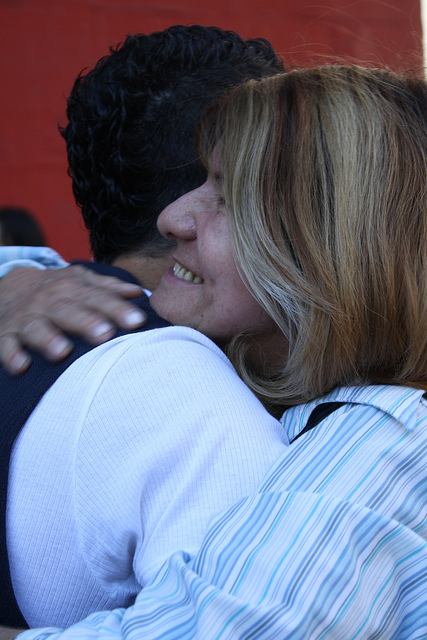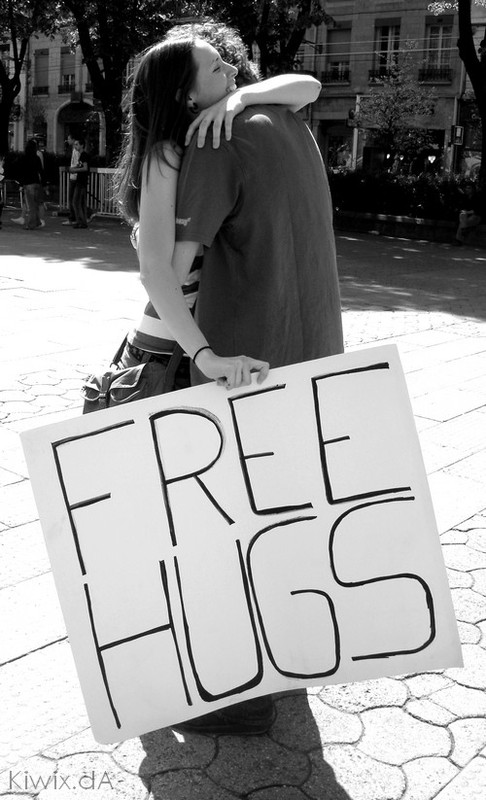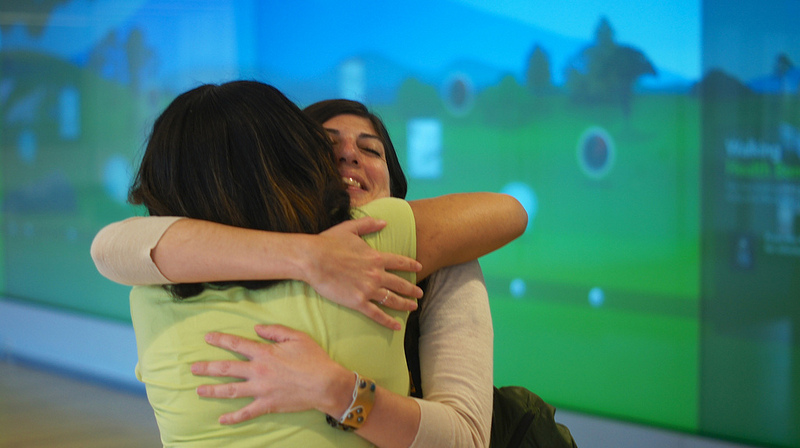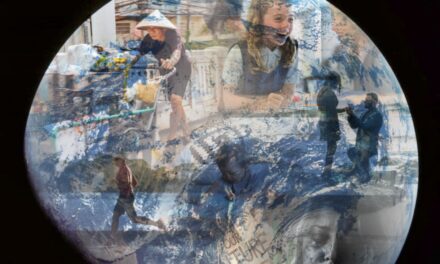 One of my grad school professors happened to work with one of my friends over the summer and when he found out who my professor was he asked me to give her a hug from him. It’s always been a tradition in my family to say something like that. “Give so-and-so a hug for me.” It’s a way to send love or affection to someone through someone else without being physically present to that person. But it’s always puzzled me since the person you ask to “transmit” your hug you do not necessarily initially hug. Oughtn’t there be a chain of hugs to make it “effective”?
One of my grad school professors happened to work with one of my friends over the summer and when he found out who my professor was he asked me to give her a hug from him. It’s always been a tradition in my family to say something like that. “Give so-and-so a hug for me.” It’s a way to send love or affection to someone through someone else without being physically present to that person. But it’s always puzzled me since the person you ask to “transmit” your hug you do not necessarily initially hug. Oughtn’t there be a chain of hugs to make it “effective”?
Now I’m just being silly. The reasoning for sending hugs is really sacramental. The fullness of love requires some physical touch. Even the shaking hands of a new acquaintance is an expression of a loving respect. It says, “I’m here and I’m present to you.” But, since distance can often separate loved ones, close friends, or family, asking someone to send a hug for us allows us—even in some partial way—to be physically present for that person. When I ask a friend to send you a hug it says to you, “Andy wants to be here and give you a hug, but since he can’t I’m going to be his proxy.”
“Be good friends who love deeply.” – Romans 12:10a
 In calling this sacramental love, we might say that it’s the divine made real in relationship. And it’s relationship made real in a physical way. And since the realm of the sacramental is not magic, but rather points to a deeper truth, I need to get away from the idea of the chain of hugs for it to be effective. Nay, asking a friend to give you a hug for me affirms the realness of our relationship and reminds you that I desire the affection of our friendship even though I am far away from you.
In calling this sacramental love, we might say that it’s the divine made real in relationship. And it’s relationship made real in a physical way. And since the realm of the sacramental is not magic, but rather points to a deeper truth, I need to get away from the idea of the chain of hugs for it to be effective. Nay, asking a friend to give you a hug for me affirms the realness of our relationship and reminds you that I desire the affection of our friendship even though I am far away from you.
The sacramental imagination in the Catholic tradition says that God is manifested in the world and in those little signs we partake in, like hugs or kisses. Sending a hug in a way sends a bit of God to another person. So when you see those people in the streets offering free hugs, take them up on it. It’s the love of God being made present in a small sacramental gesture.
Related posts:
Listen to an audio version of this post…
Music by Kevin MacLeod









A very lovely post, thank you. It was Virginia Satir who said that we need four hugs a day for survival, eight hugs a day for maintenance, and twelve hugs a day for growth… I guess Godde wants us to spread a lot more joy than we usually do 🙂